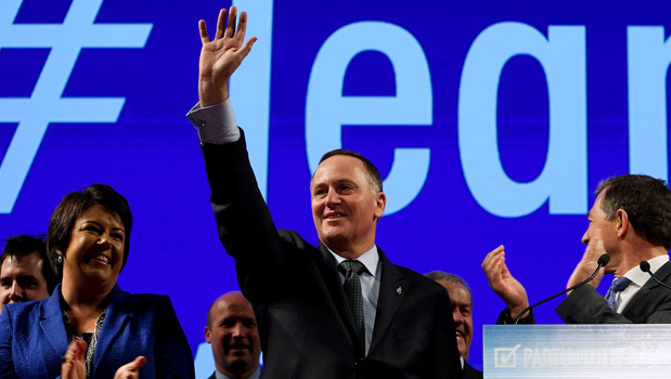
History will suggest that the narrow loss suffered by the National Party at the 2005 election may have been a blessing in disguise for the party.
National, at the time, was on a major roll after its dismal performance in 2002 and under its polarising leader Don Brash it came within a whisker of seizing the Treasury benches.
In hindsight, especially in light of the softly, softly, baby steps policy strategy employed by the subsequent John Key administration, National’s loss probably worked to its long term advantage.
Had Brash won and pushed through all the reforms he wanted in a first term, which he indeed would have tried to do, then the party would have faced a significant backlash from the electorate. The possibility of National being a one term Government under Brash has to be seen as a very real possibility.
This lesson is valuable for contemporary politics as the National Party is now looking to a post John Key era. Sooner or later the party is going to have to consider how it takes itself forward without him and whether the strategies he and his team have employed will be retained or discarded.
National MP Judith Collins has made some interesting political comments of late. She’s particularly espoused the view that politicians should stand for something. That they should have ideals they believe in that the public can see and understand. Whether or not this is her reflection on the Prime Minister’s everyman appeal or an indication of her own political ambitions is open to debate.
But it does open an interesting discussion; after nine years of staying onside with public opinion could National take a punt on ideologically led politics again?
Taking the ideological route, while politically pure, has a number of risks. Ideology tends to polarise an electorate. It makes capturing the middle ground harder and holding middle New Zealand has been the fortress on which the National Party’s success has stood since it took office in 2008.
If its grip on the middle weakens and its support drops even just a few points National’s electoral fortunes will weaken. With ACT’s and United Future’s party support minimal, National would risk compromising its chances of coalition success. In the current landscape it has to be a party of 45% or more to govern, as a party of 40% it would likely be doomed to opposition.
The counterpoint to all of this is that National’s carefully crafted middle ground strategy has hinged a lot on the personality and strength of John Key. He has probably been worth seven to 10 points to the party in the polls via the way he has maintained such a strong level of personal popularity with voters. When he goes it is likely that may go as well.
The qualities of his eventual successor are unknown but it seems unlikely anyone in the party’s current caucus could emulate the Key style and even if they tried, would voters accept an imitation?
Take your Radio, Podcasts and Music with you









